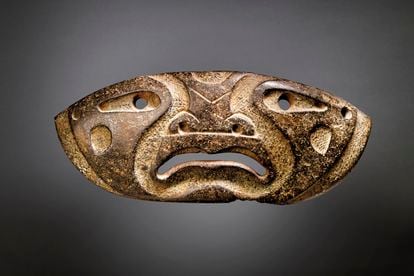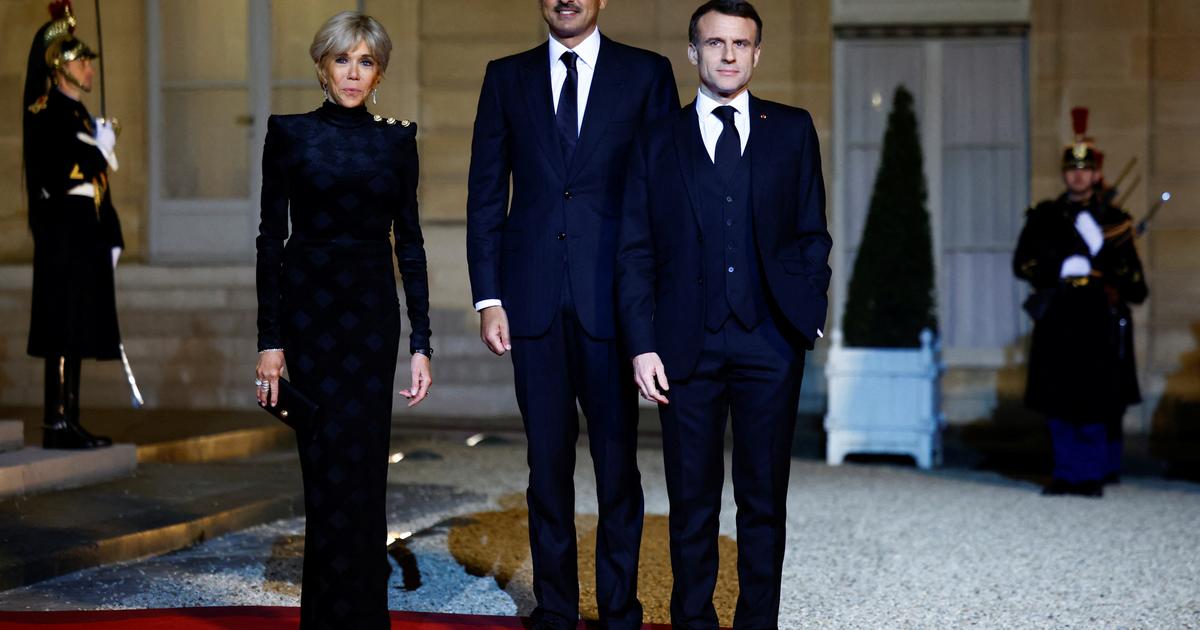Mexico and France have signed a "declaration of intent" against trafficking in cultural property. It is not clear if it will serve to end once and for all with the French private auctions of pre-Columbian art like those that in recent years the Mexican government has tried to stop, unsuccessfully, claiming that they included pieces that belonged to its patrimony. But at least Paris and Mexico now have a firm commitment to try to combat this practice that has strained their bilateral relations. The foreign ministers of both countries signed a "declaration of intent to strengthen cooperation against illicit trafficking in cultural property" in Paris on Thursday, which they hope will constitute a good first step in the right direction.
In principle, the agreement will not affect the underlying problem of this matter, the fact that the two countries have, in the words of the French minister, Jean-Yves Le Drian, “different regulations” on the matter. But it is "a good step forward that will allow us to be more effective in controlling the illicit traffic of our assets that are part of the heritage," celebrated the Mexican Foreign Minister, Marcelo Ebrard, after the signing of the joint document at the Quai d'Orsay, the seat of Gallic diplomacy.
"The recovery and protection of cultural property is a great cause for us and I am very pleased that France is joining us on this occasion in this initiative, despite the fact that our legal systems are very different and that we will not always have the same position", Ebrard said at a joint press conference. "There is a great desire to act together in this matter", has confirmed Le Drian.
According to Ebrard, the agreement will allow the two countries "to inform the entire sector that converges around cultural property of what are the rules and norms that must be observed." Among other aspects, the declaration of intent, in which both governments have been working since 2019, will allow the elaboration of a “common catalog of the pieces that most concern” Mexico, the Mexican foreign minister explained. Greater coordination will also be sought between the office specialized in illicit trafficking of cultural heritage in France and the Mexican Prosecutor's Office. Likewise, it contains several "mechanisms" that seek "to make the illicit trade of important pieces for the Mexican historical and cultural heritage as difficult as possible."
In recent years, Mexico has tried to stop, without success, several auctions in France in which pre-Hispanic pieces claimed by the Latin American country were offered.
One of the last times was last February, when the Christie's house held an auction of pre-Hispanic objects that, according to the National Institute of Anthropology and History (INAH), included “pieces that correspond to cultures originating in Mexico, which is why they form part of the nation's patrimony, ”he argued in his complaint to the Mexican prosecutor's office.
Xochipala mask, one of the pre-Hispanic pieces that Christie's auctioned in February.
It was not the first time. Between September and October 2019, the Millon and Sotheby's houses distributed dozens of pieces worth close to three million euros. In the first case, Millon auctioned more than 120 pieces from the collection that the French Jean and Manichak Aurance had accumulated since the early 1960s. Among the pieces offered were a Tlatilco fertility Venus from the modern pre-classical period, between 1,200 and 600 BC, or a figure of an Aztec water goddess Chalchiutlicue from the imperial period (1521 to 1350 BC).
There was no way that the claims of the Mexican government would stop the auction, on the other hand protected by French law. Then, the Mexican ambassador to the European country, Juan Manuel Gómez Robledo, tried to prevent it, first by appealing to the company itself and then to the French government. On the part of Millon they always found an "absolute negative", said the diplomat.
The controversy generated in September did not prevent Sotheby's from organizing a new auction a month later, although this time it preferred to hide the name of the collector.
As many pieces were sold, figures that "embody the beauty and soul of these great civilizations," the company pointed out with pomp in its catalog.
Again, the Mexican government protested.
The Secretary of Culture, Alejandra Frausto, criticized that French legislation is "very hostile" to the recovery of cultural heritage and insisted on the need to convey the message that "the value of the assets that are expropriated is not economic, but cultural".
Subscribe here
to the
newsletter
of EL PAÍS México and receive all the informative keys of the current situation of this country






/cloudfront-eu-central-1.images.arcpublishing.com/prisa/PLNY3OH7WVF7PAHBVU6Y6QKPTI.jpg)


/cloudfront-eu-central-1.images.arcpublishing.com/prisa/Z6YMDVPE2NHHTGDHDZ4XH5MOFM.jpg)


/cloudfront-eu-central-1.images.arcpublishing.com/prisa/KMEYMJKESBAZBE4MRBAM4TGHIQ.jpg)


